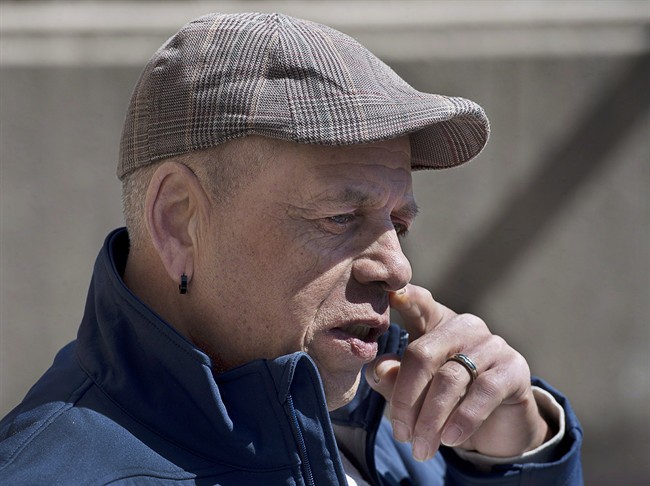HALIFAX – A Nova Scotia court has rejected the appeal of man who argued unsuccessfully last year that RCMP negligence caused his wrongful conviction on a statutory rape charge 45 years ago.

Gerry Barton’s lawyer argued at a hearing in January that a Nova Scotia Supreme Court judge erred a year ago when he cleared the RCMP of wrongdoing.
READ MORE: Retired Mountie says he doesn’t remember accused in wrongful conviction case
Dale Dunlop said Justice James Chipman should have found Barton’s confession in 1969 was false and caused by some form of police coercion when he gave a statement in Digby, N.S. Barton was 19 at the time.
The five-member Court of Appeal supported Chipman’s decision, saying he was correct in finding police met a reasonable standard of care in taking Barton’s statement.
The appeal court says Barton gave a sworn statement to the RCMP that acknowledged having had consensual sexual intercourse with the complainant in her home.
The Nova Scotia Court of Appeal originally found in 2011 there was a miscarriage of justice after the woman recanted her story in 2008 and blamed her brother for causing her pregnancy, which DNA tests confirmed.
But in the latest ruling from the appeal court released Tuesday, it cites new evidence that emerged during a civil lawsuit heard last year by Chipman in the province’s Supreme Court.
Preliminary inquiry documents from 1969 were presented in the Supreme Court showing that Barton gave a statement to police.
“There was also no suggestion at the time of improper conduct in how the statement was taken,” says Tuesday’s appeal court decision.
Dunlop argued the confession must have been both false and improperly obtained, as it was clear Barton wasn’t the father of the woman’s child.
He also argued the Charter of Rights and Freedoms may have been violated when the province refused to negotiate compensation with Barton over the past four years.
Recommendations stemming from the inquiry into the wrongful murder conviction of Donald Marshall Jr. suggested the province should have had a third party conduct an inquiry and set proper compensation in similar cases, he said.
He also said that by refusing to negotiate and forcing the litigation the province was causing cruel and unusual punishment against Barton.
But the appeal court rejected that argument, saying it and other charter arguments were “legally and factually without merit.”
The Nova Scotia Court of Appeal originally quashed Barton’s conviction after the complainant withdrew her story.
DNA testing showed her brother was 1.9 million times more likely to be the father of the boy than anyone else. His name and that of his siblings and immediate family are protected by a publication ban.
The appeal court ruled Barton won’t be required to pay the defendants’ costs.
Dunlop said he is disappointed by the decision and will consult experts on whether an appeal is possible to the Supreme Court of Canada.
“I blame it on the Department of Justice and the Nova Scotia government. … They took advantage of the fact so much time had passed that documents were destroyed and files weren’t there,” he said.
“From Day 1 they took the attitude, ‘Mr. Barton, you’re getting nothing.’ “



Comments